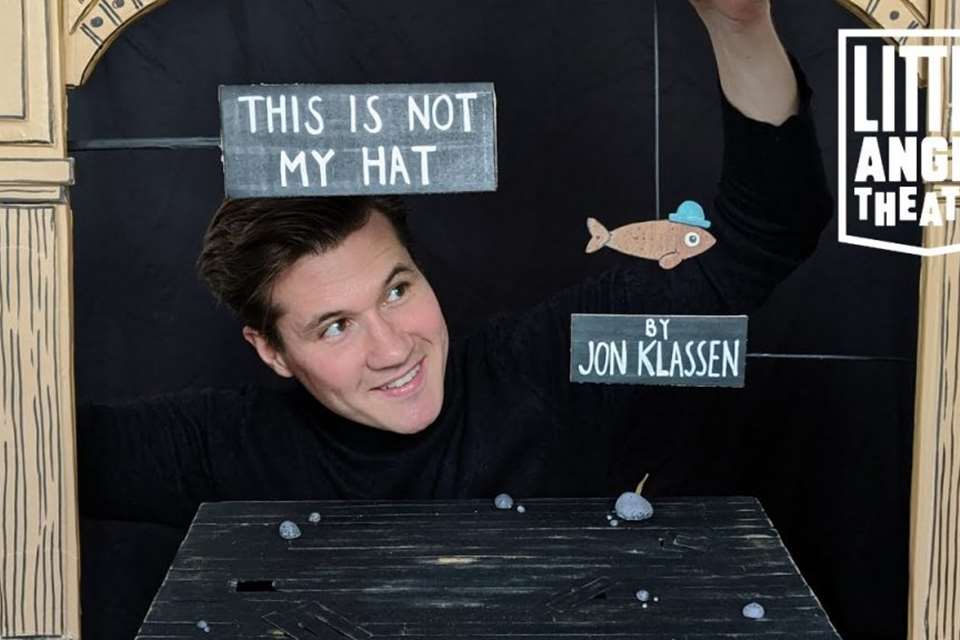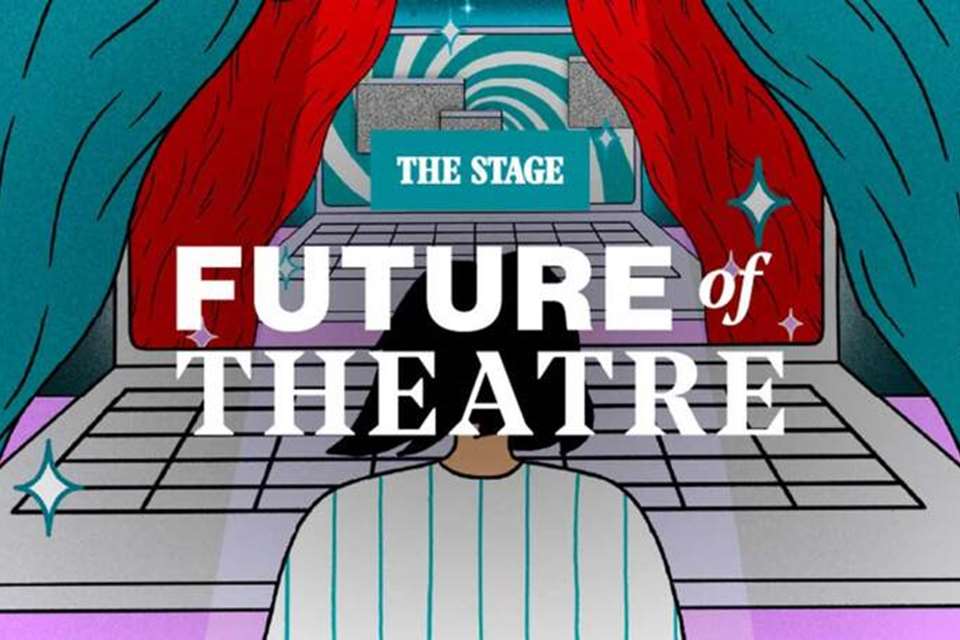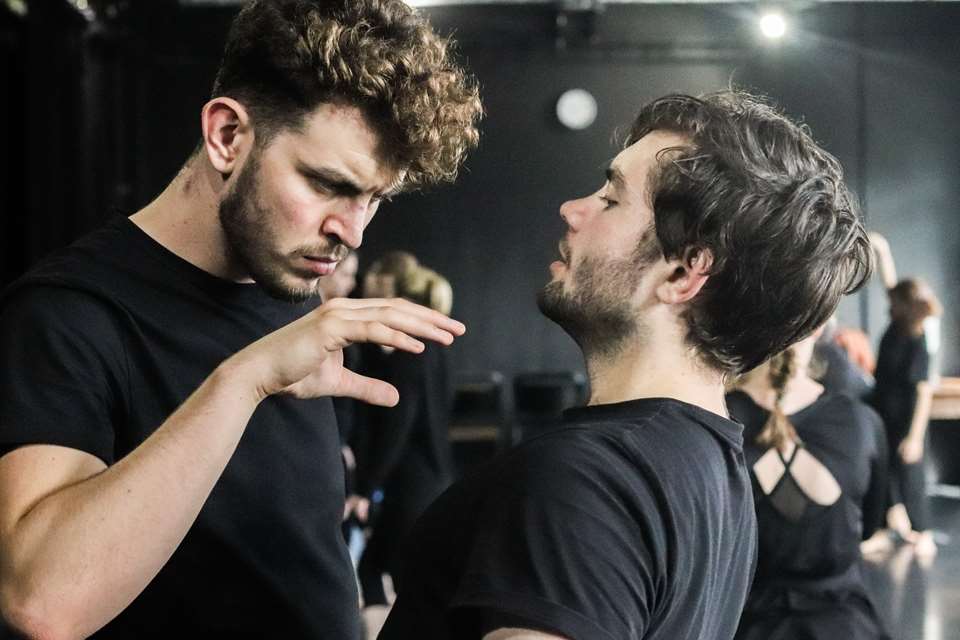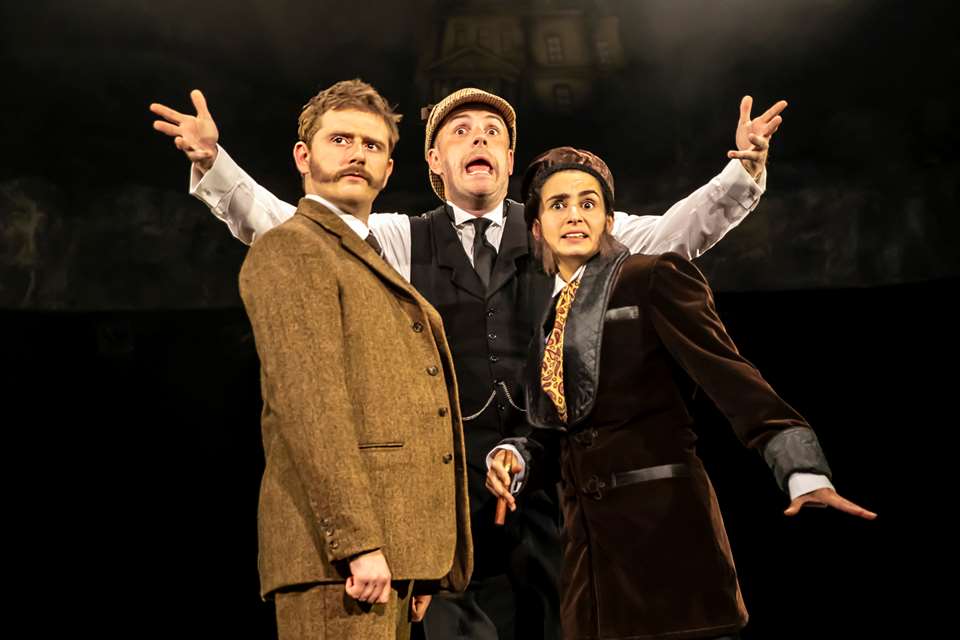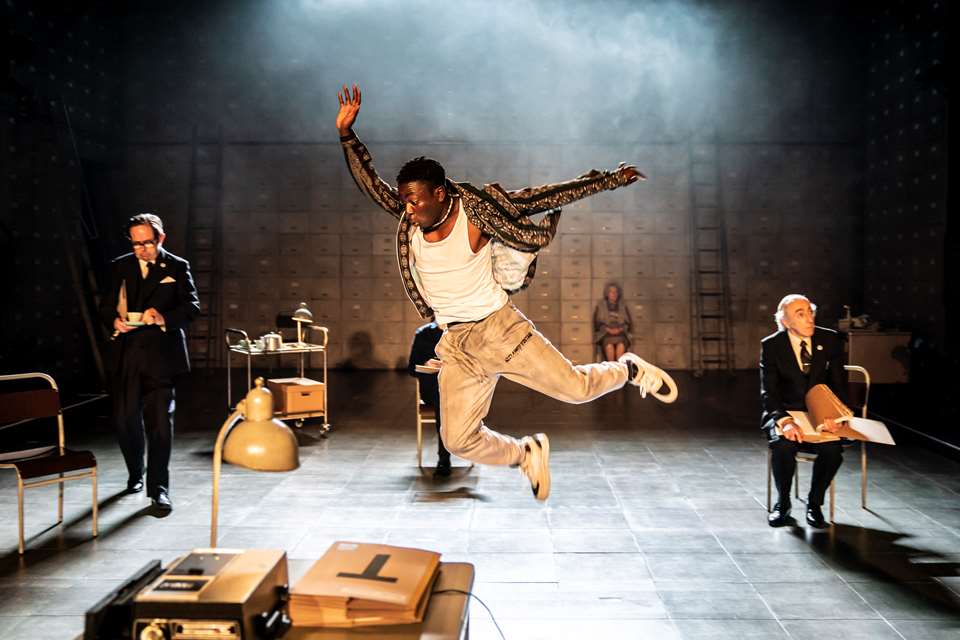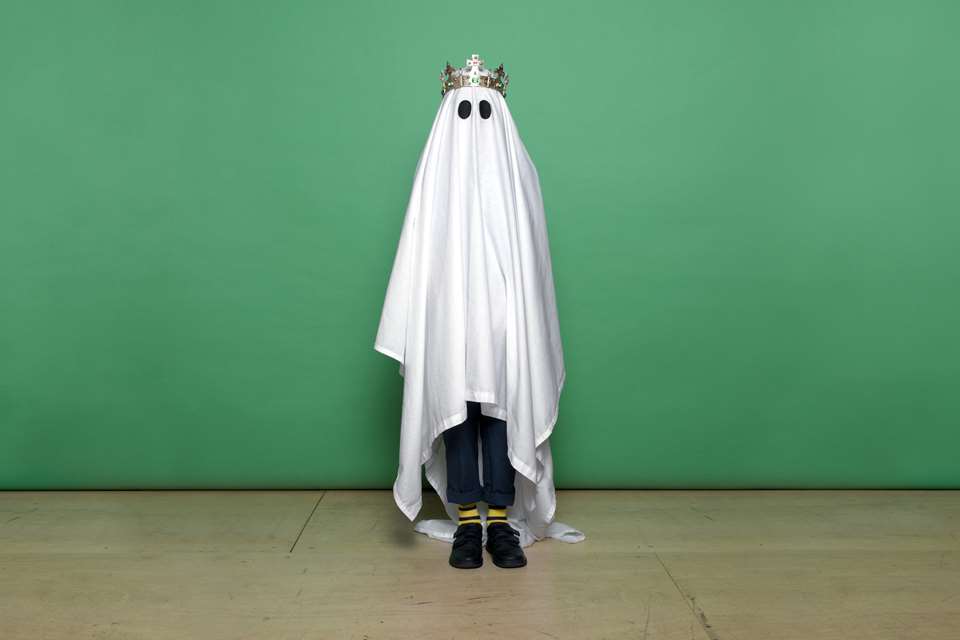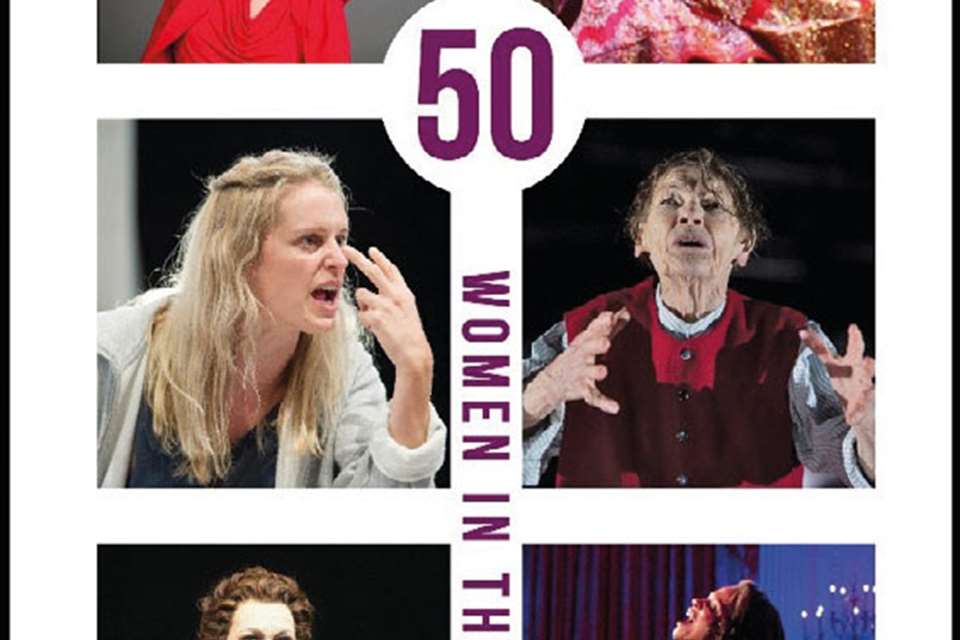Houston, we have a problem: Ramps on the Moon's mission for representation
Hattie Fisk
Tuesday, March 1, 2022
When was the last time you saw a mainstream theatre production with more than one deaf or disabled individual on the cast list? Hattie Fisk speaks to the director for change at Ramps on the Moon, Michèle Taylor, to see the brilliant work they are doing to tackle this inequality.
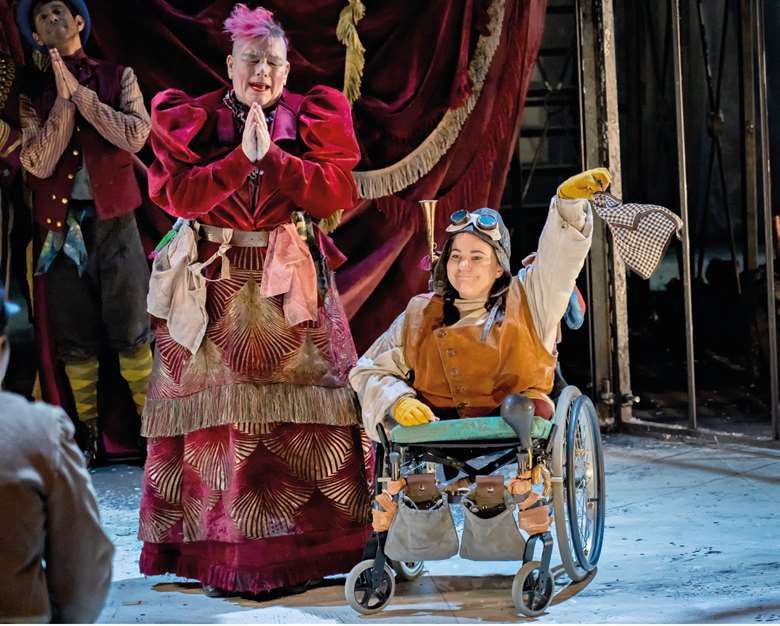
ANTHONY ROBLING
Despite the amazing growth of disabled-led theatre companies, such as Deafintely Theatre and Graeae Theatre Company, there is some way to go in terms of integrating disabled and deaf individuals into mainstream theatre. A show consisting only of disabled performers is brilliant, and it can break down so many preconceptions and assumptions held by audience members, but where does that leave the individuals who want a career on the mainstream stage?
If a performer is unwillingly pigeon-holed to ‘disabled theatre’, we are left with a tokenistic view of deaf and disabled performers, ultimately underplaying what they are capable of. Ramps on the Moon aims to change this. The group is a council funded consortium led by six theatres across the UK, that strives to produce productions that reflect society back at itself and give the industry the permission to take risks.
How it started
The collective began after the New Wolsey Theatre in Ipswich were involved in co-producing a production of The Threepenny Opera with Graeae Theatre Company, that toured to partner theatres Leeds Playhouse, Birmingham Repertory Theatre and Nottingham Playhouse. The show, featuring both non-disabled and disabled company members, was a real success. At Birmingham Rep, the production coincided with the venue's Brecht Festival, meaning passionate Brecht fans, who may have had no connection with disability, saw the text with a different nuance and angle, and by all accounts thoroughly enjoyed the production.
From there, the participating organisations decided they had to do more work like this, which is how Ramps on the Moon was born. Adding to the original line-up of theatres, when the consortium formed, Sheffield Theatres and Theatre Royal Stratford East were also added to the mix, with Graeae Theatre remaining as a strategic partner. In a similar fashion to The Threepenny Opera, the partnership of six theatres across the UK each get a turn at producing an accessible and diverse show for a season, which then tours the partner venues.
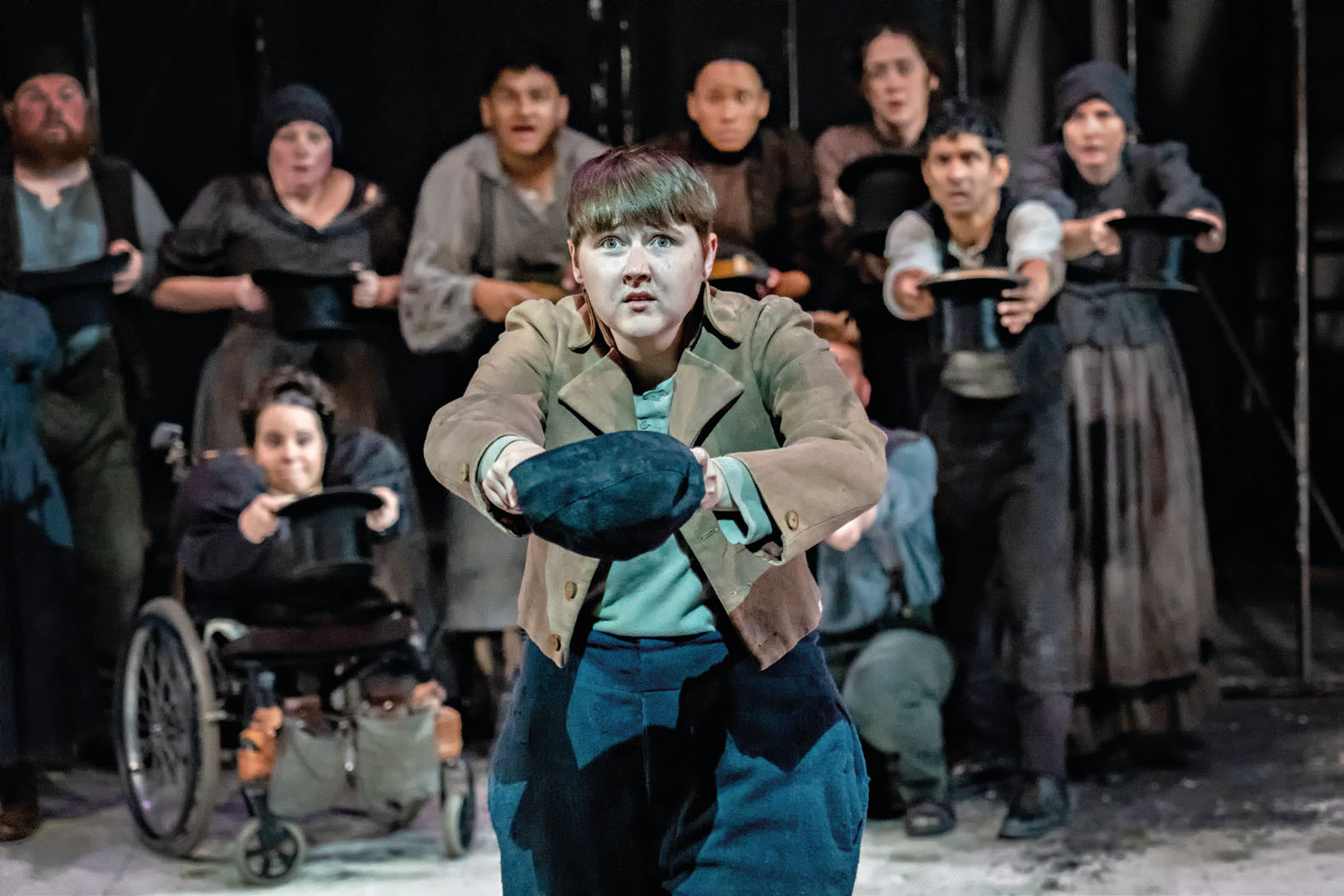 © ANTHONY ROBLING
© ANTHONY ROBLING
Brooklyn Melvin (Oliver) and the company of Ramps on the Moon's Oliver Twist
A reflection of the public
‘Our mission is to enrich the stories we tell and the way we tell them by elevating the place of deaf and disabled people in mainstream theatre’ says Michèle Taylor, director for change at Ramps on the Moon. Taylor is a powerhouse striving for all forms of equality in theatre; in January she was appointed an MBE for services to Theatre and People with Disabilities as part of the 2022 New Year's Honours list. ‘The public should not be surprised that we can have a disabled Juliet, or a disabled Hamlet’, Taylor says. ‘We believe really strongly that what we do enriches the offer that theatres have to give, and it actually makes far more exciting and richer theatre.’
All the Ramps on the Moon productions are made up of a mix of deaf, disabled, hearing and non-disabled individuals. This is for several reasons, including, as Taylor makes clear, that it is ‘not about being a “disability show” or being a disability product.’ The access tools for those with disabilities are built into each production, bringing to the forefront the creativity that these types of productions can provoke. Taylor emphasises that with the social model of disability, barriers facing deaf and disabled individuals can be easier to break down and mend. However, as part of their mission to break into mainstream theatres and the mainstream stage, the productions are sold as part of the main programme of each theatre and are not advertised as a show for or containing a disabled cast.
Starting a movement
There is reassurance in the collective experience, and one of the greatest achievements of Ramps on the Moon is its communal bank of information that is shared with so many of those taking part. The organisations involved communicate regularly about what has (and what hasn't) worked, continuously learning about how to widen accessibility in their venues and the wider industry; they even share individuals for casting opportunities across the different organisations. Although the companies are vastly different, and often the experiences are not directly transferable, there are lots of commonalities that make this collaboration worthwhile. The productions have worked so well that other organisations across the UK are starting to take note of the success and contemplate how they may adopt these elements into their own productions. ‘I think that it has started to have some critical mass in the industry,’ Taylor says.
How can we help?
There is so much to learn from this collaborative project. Agent for change at the New Wolsey Theatre, Jamie Beddard, suggests that something all involved can benefit from, whether deaf or disabled or not, is starting every rehearsal process with the question: what is it that you need to do your best work? Through doing this, an approachable forum for assistance is created, and those taking part can feel more confident from the outset – both in asking for support and for getting stuck into the rehearsals.
‘A lot of this is about unlearning, not learning. All those ways that you think this is complicated – it really isn't,’ says Taylor. She encourages organisations to talk to those with accessibility barriers and embed that as good practice throughout the organisation. Taylor has a giant list of things that make a good ally, while also establishing that this answer would be different for each disabled person. Ultimately, she believes a good ally is someone who is prepared to make mistakes and be upfront about them, and someone who truly believes that deaf and disabled talent sits alongside non-disabled and hearing talent, without exoticising, or using the words ‘despite’ or ‘considering’. It is about genuine equality and respect; the first step towards helping is to recognise this.
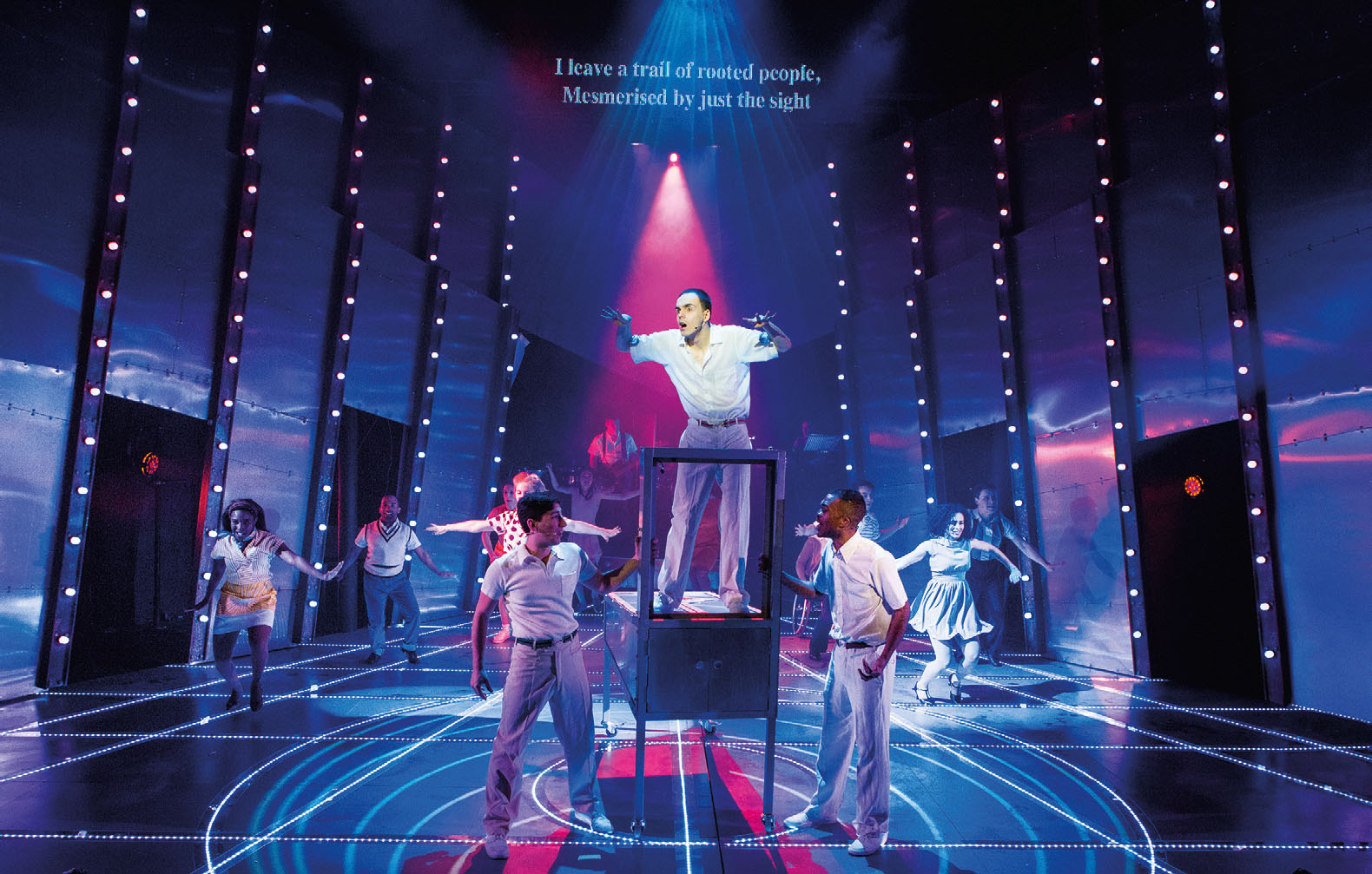 © MIKE KWASNIAK
© MIKE KWASNIAK
Tommy – a New Wolsey Theatre Production in co-production with Ramps on the Moon
Accessibility in education
In the classroom, Taylor wants to keep this dialogue going. If students are taught from an early age that performing alongside those with accessibility barriers is the norm and finding ways to support them within a production is just another part of the rehearsal process, then this will benefit the next generation of the performance industry tremendously. Half of the battle is ensuring these issues are spoken about with confidence, rather that targeted in one lesson or project and ignored for the rest of the year. ‘We need to check ourselves, and make sure we are not making assumptions about what students are and are not capable of before even realising we are doing it. We may assume that the lad with cerebral palsy is going to be part of the chorus rather than have a main part. Why?’
Taylor is asking drama teachers to use accessibility barriers as starting points for lessons. If there is a deaf student for whom in particular sound cues are not going to work, that is a great opportunity to explore technical aspects of how you can get around that. If there is a student whose speech some people find difficult to follow, that is something to explore with the whole class in a workshop. Teachers can utilise examples of companies such as Ramps on the Moon (who have footage available on YouTube), Graeae and Mind the Gap to demonstrate these elements. However, Taylor makes clear that how this is shown to students is just as important as what is shown. Just as Ramps on the Moon present deaf and disabled performers as part of the mainstream stage, these elements should be presented as ‘part of the theatre landscape’, rather than a glamorised extra.
The consortium is developing ground-breaking work. Hopefully, with a little help from drama educators, every production will look like a Ramps on the Moon production in the near future.
Follow Ramps on the Moon on YouTube.


